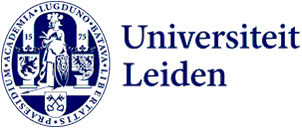Interested in following a Winter school abroad next year?
Do you want to follow some classes this winter at the Catholic University of Portugal or The Complutense University of Madrid? The Europaeum, a network of 18 top universities in Europe including Leiden University, offers you this chance. Please read more information below about the different programmes.
The Lisbon programme has an applicaton deadline of September 2nd. The Madrid Winter School has its deadline on October 20th.

You can also read more information on the Europaeum website.
Date: 7-1o January 2025
Location: Catholic University of Portugal, Lisbon
Deadline: September 2nd, 2024
Description: Fear is a powerful emotion that is thought to obscure, undermine or derationalize decision-making. It can either trigger or paralyze action, inducing irrational behavior, generating moral panics or fostering responses to keep people safe. Fear gives high visibility to inflammatory discourses that furnish a central stage across the information environment, creating a loss of control and predictability alongside an intensification of uncertainty, threat, risk and insecurity across different publics. While reports on fear-inducing conditions and events have the potential to induce action and create solidarity for those being effected, the media also instigate hate against marginalized social groups who have become the target of what Ruth Wodak (2015) has called “the normalization of shameless politics.”
The Europaeum invites student participants in the Lisbon Media & Communications Winter School 2025 which explores this topic and aims to cut across the many discourses driven by fear, considering its weaponization by political, religious and social actors who aim to increase their own power, including leaders of democratic and authoritarian regimes, drug cartels, religious institutions, terrorist groups and protest groups. We welcome proposals for 20-minute papers by masters or doctoral students from network member universities to discuss the intertwined relation between media and fear in different geographies and temporalities.
Applications should include the Europaeum application form, a brief CV, a statement of purpose (up to 500 words), and a reference letter from their supervisor or academic advisor. Those who wish to submit a paper should also add a short abstract of the proposed paper (up to 500 words).
Under an agreement with the Media & Communications Winter School at the UCP, some Europaeum students will be invited to present their papers, others to audit the event without presenting formally. The Europaeum will contribute the same funds towards expenses (namely, accommodation, travel, and meals) to both groups.

You can also read more information on the Europaeum website.
Date: 4-7 February, 2025
Location: Catholic University of Portugal, Lisbon
Deadline: October 20th, 2024
Description: The European Green Deal, launched in 2019, is the European Union’s ambitious plan to transform its economy for a sustainable future. Its primary goal has been to make Europe climate-neutral by 2050, effectively eliminating net greenhouse gas emissions and encompassing various sectors: energy, transport, agriculture, housing, and industry.
The EU has made progress in several areas, setting binding targets for reducing emissions by at least 55% by 2030 compared to 1990 levels. The “Fit for 55” package, introduced in 2021, outlined specific policies to achieve these goals, including reforms to the Emissions Trading System, increased renewable energy targets, and stricter CO2 emission standards for vehicles.
The implementation of the Green Deal now faces several challenges, however, in light of recent changes to the composition of the European Parliament in particular. Some member states, particularly those heavily reliant on fossil fuels, have expressed concerns about the pace and scale of proposed changes. Others worry about maintaining economic competitiveness, especially in energy-intensive industries, if other global economies do not adopt similarly ambitious climate policies.
Aligning various EU and national policies across different sectors remains a complex challenge, and global events, such as the COVID-19 pandemic and the energy crisis stemming from the Russia-Ukraine conflict, seem certain to impact the implementation timeline and priorities negatively. Ensuring a “just transition” that does not disproportionately affect vulnerable communities or exacerbate existing inequalities has also been identified by the EU institutions as crucial.
We invite applications from master’s and doctoral candidates at Europaeum member universities who wish to join the discussions and/or to present a 15-minute paper based on their research.
Participants will join lively discussions during the event and hear from experts from the Complutense University and beyond. Those not presenting a paper will be allocated a role as discussant or chair to kick-start Q&A sessions following on from presentations. Successful applicants will be provided with free accommodation and reimbursed reasonable travel expenses.
Applications should include the Europaeum application form, a brief CV, a statement of purpose (up to 500 words), and a reference letter from their supervisor or academic advisor. Those who wish to submit a paper should also add a short abstract of the proposed paper (up to 500 words).

About the Europaeum
The Europaeum is a network of 17 leading European universities aiming to connect talented students and lecturers and promote a ‘European feeling’ through cooperation and academic mobility. Read more about the partnership.
